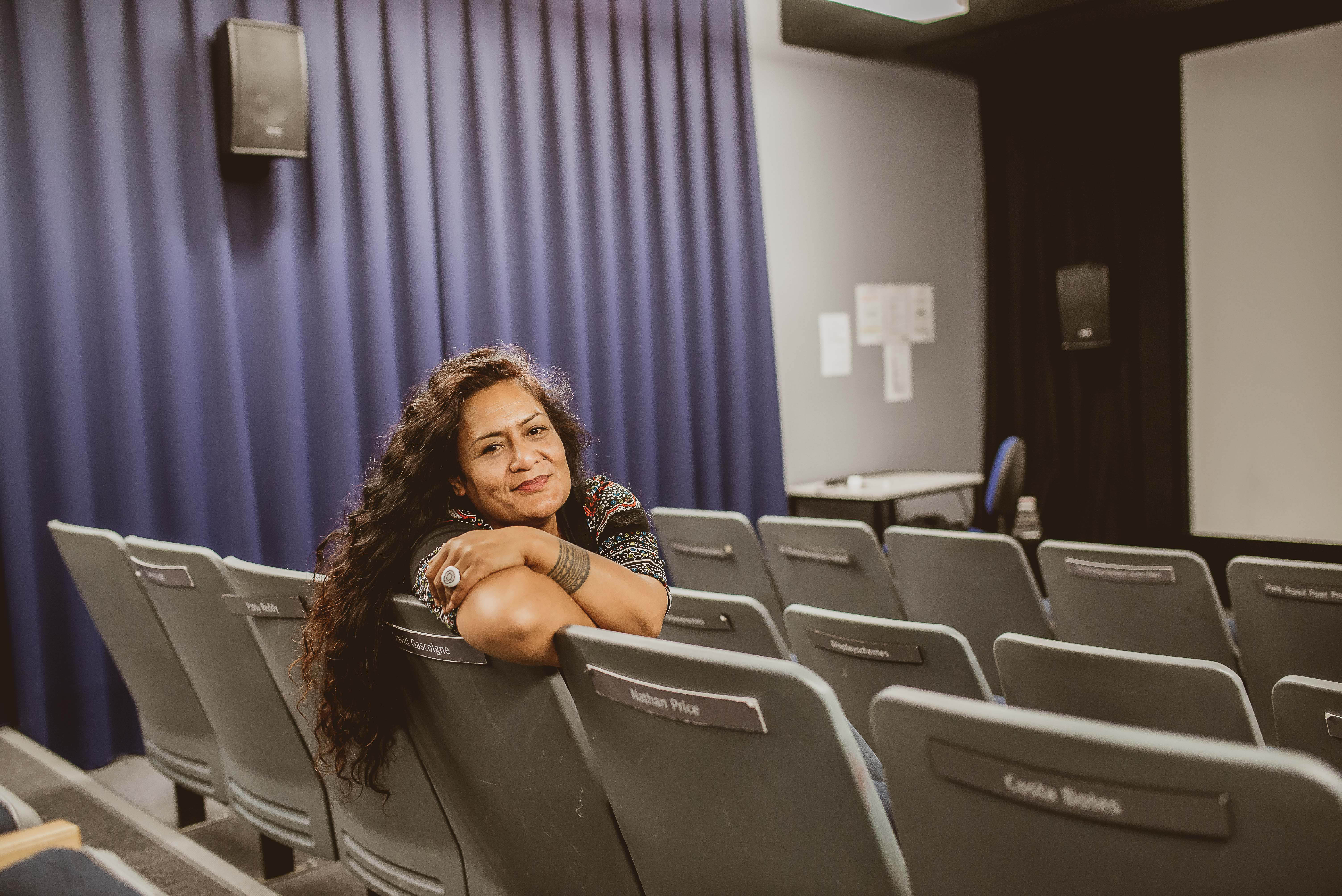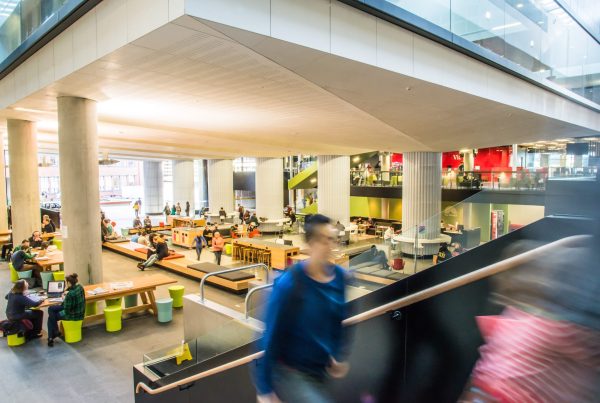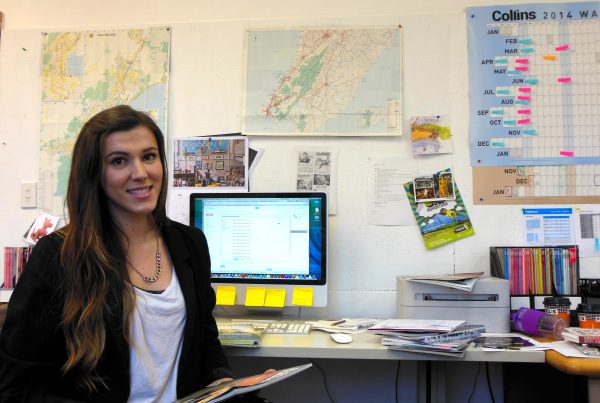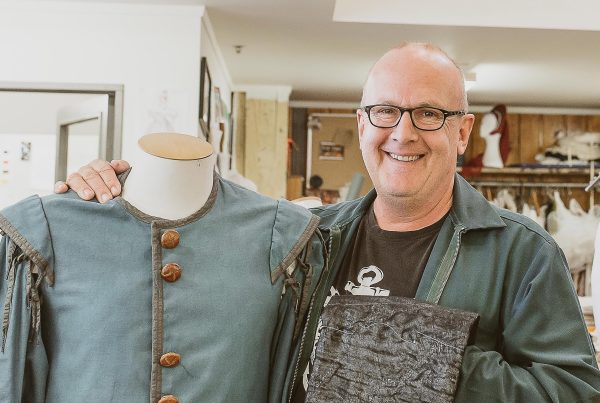
She was encouraged into acting in her teens, and auditioned successfully for Toi Whakaari, where she was in the same year as Tim Balme and Cliff Curtis. After graduating, she was cast in the Gibson Group comedy series Skitz and then its spin-off, The Semisis, while at the same time winning Chapman Tripp Theatre Awards for work like John Kneubuhl’s Think of a Garden.
Sima was accepted at Melbourne’s prestigious Victorian College of the Arts (VCA) School of Film and Television (formerly Swinburne), winning the VCA Encouragement Student Award. After graduating in 1994, she returned home to Wellington and made O Tamaiti (1996), which won the prestigious Best Short Film award at the Venice Film Festival, as well as Best Short at the New Zealand Film Awards. Her documentary Velvet Dreams (1997), on the arcane art of velvet painting and especially its practitioner Charlie McPhee, screened internationally and also picked up several awards, while her second short film — Still Life (2001) — won the top prize at the Montreal Film Festival. Her first music video — for her brother Bill Urale (aka King Kapisi) —took out the best New Zealand Music Video award, almost as a matter of course.
Sima has also worked with her sister Makerita on the television arts show The Living Room, and with her brother Tati, and sisters Natasha and Maila, who are all employed in the arts.
In 2008, Sima’s debut feature, Apron Strings, opened the New Zealand International Film Festival, and since 2012 she has been the head tutor at the New Zealand Film and Television School in Vivian Street.

“Film-making, you have to think quite selfishly, y’know? When you’re making the film, it has to be generous, and compassionate, and all that stuff. But when it comes to actually getting a film off the ground, you have to be single-minded and selfish. I think everyone who’s ever made a film would have found that. It’s not like other arts, where you can pick up a guitar, or a sheet of paper, and create. With a film, you’re going to need people to follow you, and you’re going to need a certain amount of money — and that’s never small — and you’re going to need some infrastructure behind you. And putting all that together… it takes an act of will, and it takes two or three years every time you try to do it. That’s my experience anyway. And it gets tiring. So once in a while it’s good to put your energy into something else, and for me, it was good to have an opportunity to pass on a few things, and to put something back into the film community.
“Priorities change. At heart I’m a Samoan girl, and my parents were getting older, and I wanted to be available to help take care of them. When you’ve got people to love and to care about, it changes everything. And suddenly that lifestyle, of being a film-maker… it had to change. So I saw this and I applied, because I could see that I could be a good fit for it, and I got it. So this job became about priorities. And now I’m here, I love it. I’m supposed to be here inspiring them, and they just keep on inspiring me.”
We talk for a while longer, about the school, and the focus of this interview. Sima is adamant that if the interview is ‘about the school’, then there are other people I should also talk to. But I assure her that the piece is about her, more than the school. She pauses, and then tells me something I perhaps should have known before I made the call to set up this meeting.
“Dad passed away, just two weeks ago,” she says. “It was a beautiful tangi. All the kids, all the grandkids, everyone playing, everyone helped paint the coffin. It was quite amazing. All the kids got to lay their hands on the coffin.”
She repeats that last line several times as she speaks. “All the kids got to lay their hands on the coffin.” On my recording it almost takes on the quality of a reverie, of a line from a poem waiting to be written. Or just maybe it’s a moment in a film that hasn’t yet been made.
“Dad was amazing. He was just the funniest, hardest-working guy. It was impossible for a partner, cos Dad was always funnier than they were… better company.”
“He could hardly speak any English, but it seemed like everyone in Wellington knew him. He’d be at all the openings, all the first nights. Wherever the kids were putting something on, Mum and Dad would be there. Coming over here I think he dreamed of his kids being doctors and lawyers, but instead every one of us went into the arts.
“We were Wellington kids. Dad worked at the carpet factory, and Mum was a teacher at Wellington South. We couldn’t walk down the street without people wanting to stop and talk to Mum. She was an amazing teacher. Really strong, really intelligent, an amazing motivator. Even today, it feels like she must have taught half of Wellington. Tell you what, a couple of years ago I was visiting the hospital, and one of the doctors there, he’s looking at me, and he says, ‘Is your name Urale?’, and I think I know what’s coming, he’s seen something me or Makerita was in, but no, he says, ‘Can you tell your Mum that I did become a doctor please? She said I could.’”
Sima laughs long and hard at this, and literally shakes her head at the memory. It’s a wonderful moment, in a conversation that has me grinning pretty much from beginning to end.
“I think you’ve got to be a bit mad to even try to make a film. I know everyone says that about whatever their job is, but in film, I genuinely think it’s true. I mean, what it takes to put a film together… it’s practically autistic levels of perseverance and focus. And then there’s the actual making of it, and all that, for this incredibly insecure, unstable life. It’s amazing to me that people want to do it. But here we are, running a film school, turning away 80 percent of the people who apply.

Sima has that enviable strength that comes, I think, from being raised in a large and rambunctious family, of being a child from a village — whether it’s the village in Samoa, or a village of the spirit that she carries wherever she goes. And also a strength that comes from growing up in Newtown and south Wellington, hanging with the tough kids and the brawlers, at a time when the city could be a lot more dangerous than it is now… (“You literally knew which gang had which pub. Tell that to the kids in Courtenay Place now. Hah!”) In a theatre, or on her own film sets, she brings community with her, and she seems to create it where she works. It’s a fabulous gift. I can’t help but envy these students a little.
“I don’t know how much you can teach really. They’re not here to train to do a 9–5 job. And we’re trying to get what should probably be a three-year course into one year. So we can’t possibly just sit them down and tell them stuff. People never really learn like that anyway. But I think you can show. And I think that’s what the good teachers do. Y’know, I never tell any of the students that we expect them to be here at the weekends. Because we don’t, well not officially. But if they’ve a big project on, then they’ll see me in here. And they might get it from that.”
I ask Sima what she might look for in a script, and she answers immediately. I guess it’s a question that she’s been asked many times already, but her answer is anything but rehearsed, just tested.
“It’s the theme. It’s not enough to just have a story, and some characters running around doing stuff. Anyone can write that, and that’s all half the stuff you see is. But if you want to make something good, you’ve got to know what it’s really about. You’ve got to have a theme, and you’ve got to understand what it is you’re saying. Without that, it’s all a bit pointless eh? But unless I can see a theme, I’m not going to be able to make the film.
“I’m not really that prolific. There’s a lot of directors who have made a lot more than me. But I think the few projects that I have made, they’ve been noticed a bit. Because of the themes, or some twist or angle that I bring to it. So, maybe people think of me as being prolific, and that’s great, but really I just try to make them count.”
Just for a moment, Sima holds a serious face. And then, like she has a dozen times in the last hour, she dissolves into a storm of laughter. Caroline the photographer arrives, and we head down to the studio.





